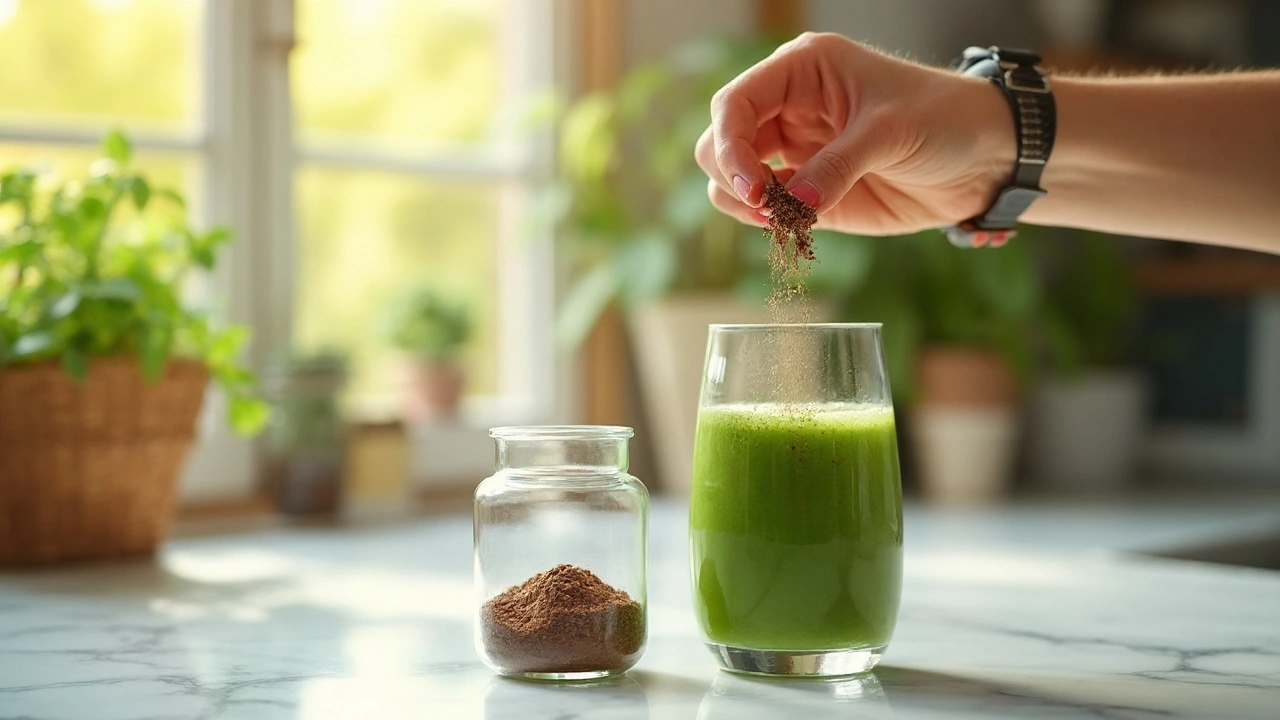Natural Antioxidant Benefits & Top Sources
Ever wonder why you keep hearing about antioxidants in health articles? They’re the tiny molecules that protect your cells from damage caused by free radicals. Think of free radicals as the rust that forms on metal – left unchecked, they can wear down body parts over time. Natural antioxidants act like a rust‑removing spray, slowing the wear and keeping you feeling younger longer.
Because they come from plants, herbs, and foods, natural antioxidants are generally safe and easy to add to daily meals. You don’t need a fancy lab to get them; a handful of berries, a splash of lemon, or a daily supplement can do the trick. The real win is that they support heart health, immune function, and even skin appearance without the side‑effects of many synthetic drugs.
How Natural Antioxidants Work
When you eat a fruit or take a plant‑based supplement, antioxidants donate electrons to neutralize free radicals. This stops the chain reaction that would otherwise damage DNA, proteins, and cell membranes. The result? Lower inflammation, better blood flow, and a stronger defense against chronic diseases like heart disease and certain cancers.
Your body also produces its own antioxidants, such as glutathione, but lifestyle factors – smoking, stress, pollution – can deplete them fast. Boosting the supply with natural sources helps keep the balance in check. It’s not about a single miracle ingredient; it’s about a mix of compounds working together.
Top Natural Antioxidant Sources
Here are some everyday items that pack a powerful antioxidant punch:
- Tangerine supplements – Rich in citrus bioflavonoids, they support immune health and improve nutrient absorption.
- Pitcher plant extract – Contains plumbagin, a strong antioxidant that research links to anti‑inflammatory benefits.
- Cherry Laurel Water – A trending drink loaded with anthocyanins that help reduce oxidative stress.
- Neem – This super‑plant offers a blend of flavonoids and terpenes that protect cells and support gut health.
- American Ginseng – An adaptogen that not only fights fatigue but also supplies antioxidants that protect the heart.
If you prefer whole foods, think berries, dark leafy greens, nuts, and seeds. A simple breakfast bowl with blueberries, spinach, and a sprinkle of walnuts covers many of the same compounds found in the supplements above.
When choosing a supplement, look for third‑party testing, clear dosage instructions, and a short ingredient list. Products like Tangerine or Pitcher Plant capsules often include a potency rating, making it easy to compare.
Incorporating antioxidants doesn’t have to be a chore. Add a squeeze of lemon to water, snack on a handful of almonds, or swap your afternoon coffee for a tangerine‑flavored tea. Small tweaks add up, and you’ll notice more steady energy and fewer aches over time.
Bottom line: natural antioxidants are a low‑cost, low‑risk way to protect your cells and support overall health. Mix foods, herbs, and well‑tested supplements into your routine, and let your body do the rest. Keep it simple, stay consistent, and enjoy the benefits of a rust‑free life.
Catechu: The Essential Supplement for Modern Health Enthusiasts
- Benjamin Aghaki-Allen
- Health
- 16 comment
Discover why catechu, a tannin-rich botanical, is becoming a must‑have supplement for health‑focused people, thanks to its antioxidant power, gut benefits, and support for weight control.
VIEW MORECategories
Popular posts
-
Hatch-Waxman Act: How U.S. Law Made Generic Drugs Affordable and Accessible
Benjamin Aghaki-Allen -
Where to Find Free or Low-Cost Medications at Community Clinics
Benjamin Aghaki-Allen -
Ranexa (Ranolazine) 2025 Guide: Uses, Dosage, Side Effects, Interactions, and Alternatives
Benjamin Aghaki-Allen -
Mail-Order Generics: Real Benefits and Hidden Risks of Home-Delivered Medications
Benjamin Aghaki-Allen -
Viagra Sublingual vs. Other ED Treatments: Detailed Comparison
Benjamin Aghaki-Allen
Popular tags
- side effects
- medication safety
- online pharmacy
- generic drugs
- medication errors
- drug side effects
- dietary supplement
- gut health
- blood pressure medication
- alternatives
- medication adherence
- Hatch-Waxman Act
- drug interactions
- weight loss
- dosage
- weight management
- quality of life
- cheap generic Zoloft
- affordable sertraline
- Claritin
